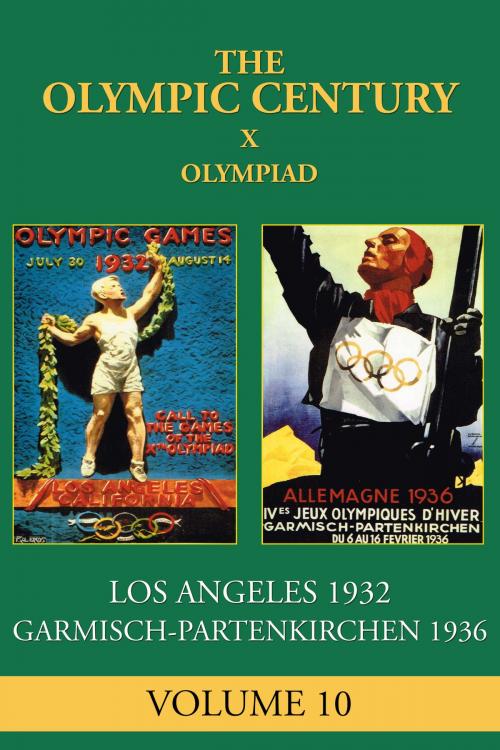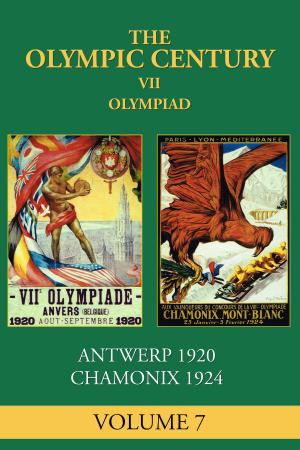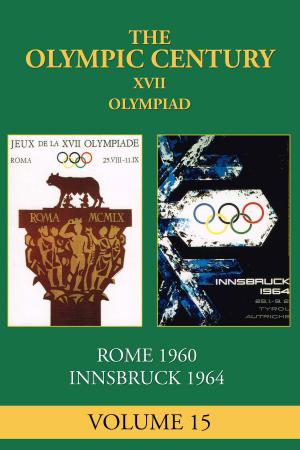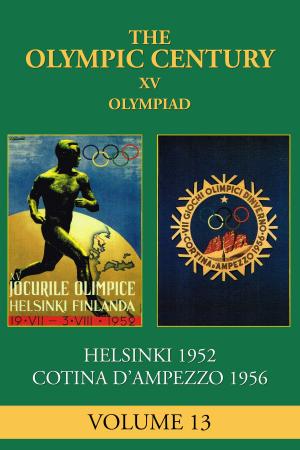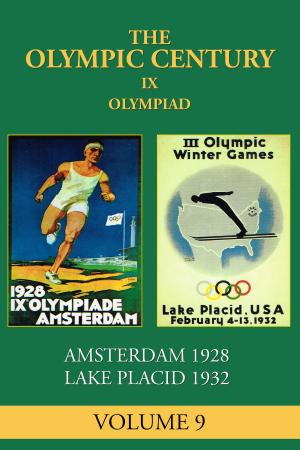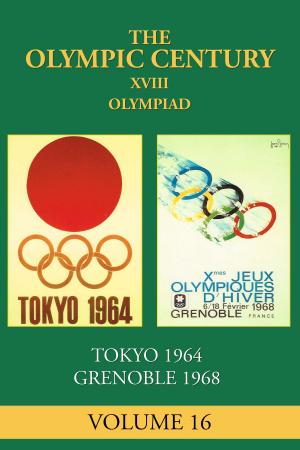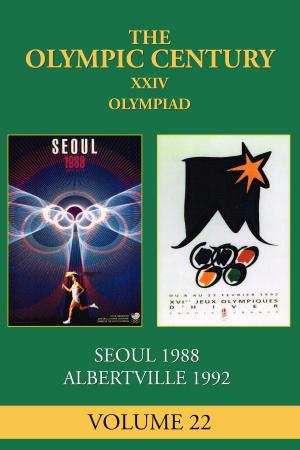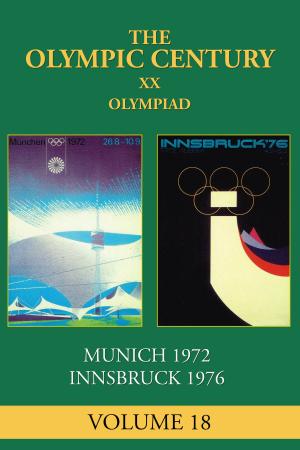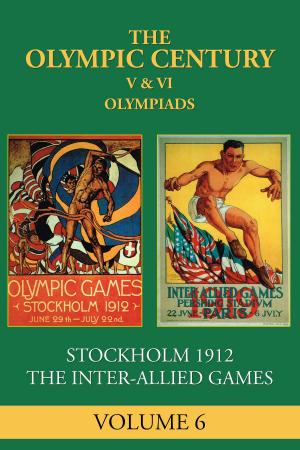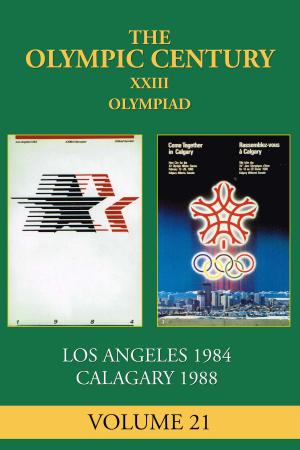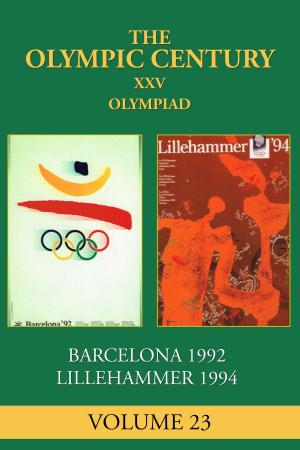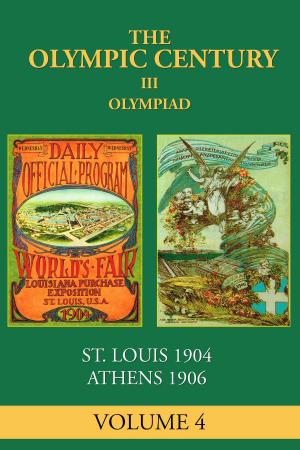| Author: | Ellen Galford | ISBN: | 9781987944099 |
| Publisher: | Warwick Press Inc. | Publication: | November 18, 2015 |
| Imprint: | Warwick Press Inc. | Language: | English |
| Author: | Ellen Galford |
| ISBN: | 9781987944099 |
| Publisher: | Warwick Press Inc. |
| Publication: | November 18, 2015 |
| Imprint: | Warwick Press Inc. |
| Language: | English |
The X Olympiad, the tenth volume in The Olympic Century series, begins with the Games of Los Angeles, 1932. With the entire world locked in the depths of the Great Depression, the book describes the thrills of the world's greatest festival of sport played out against the backdrop of Hollywood's Golden Era.
With famous movie stars watching from the stands of the legendary Memorial Coliseum, the 1932 Olympics created its own cast of legends. The book tells the story of Babe Didrikson, perhaps the greatest female athlete of the 20th Century, who won two golds and one silver in track and field in Los Angeles before going on to even greater fame as a pro golfer; Kusuo Kitamma of Japan, not yet 15, who became, and remains, the youngest ever Olympic swimming champion; and the American swimmer Buster Crabbe, who won gold in the pool and later went on to Hollywood stardom in the Buck Rogers and Flash Gordon serials of the 1930s and 40s.
Following Los Angeles, the focus of the book shifts to 1936 and the Winter Olympics in Garmish-Partenkirchen, Germany, the first to feature Alpine, as well as Nordic, skiing events. Against the backdrop of Hitler's rising Third Reich, the book follows the exploits of athletes like Sweden's Sonja Henie as she claims her third consecutive figure skating gold; and the unlikely British ice hockey team, which upset the dominant Canadians in their quest for a fifth-straight Olympic gold.
Juan Antonio Samaranch, former President of the International Olympic Committee, called The Olympic Century, 'The most comprehensive history of the Olympic games ever published'.
With famous movie stars watching from the stands of the legendary Memorial Coliseum, the 1932 Olympics created its own cast of legends. The book tells the story of Babe Didrikson, perhaps the greatest female athlete of the 20th Century, who won two golds and one silver in track and field in Los Angeles before going on to even greater fame as a pro golfer; Kusuo Kitamma of Japan, not yet 15, who became, and remains, the youngest ever Olympic swimming champion; and the American swimmer Buster Crabbe, who won gold in the pool and later went on to Hollywood stardom in the Buck Rogers and Flash Gordon serials of the 1930s and 40s.
Following Los Angeles, the focus of the book shifts to 1936 and the Winter Olympics in Garmish-Partenkirchen, Germany, the first to feature Alpine, as well as Nordic, skiing events. Against the backdrop of Hitler's rising Third Reich, the book follows the exploits of athletes like Sweden's Sonja Henie as she claims her third consecutive figure skating gold; and the unlikely British ice hockey team, which upset the dominant Canadians in their quest for a fifth-straight Olympic gold.
Juan Antonio Samaranch, former President of the International Olympic Committee, called The Olympic Century, 'The most comprehensive history of the Olympic games ever published'.
The X Olympiad, the tenth volume in The Olympic Century series, begins with the Games of Los Angeles, 1932. With the entire world locked in the depths of the Great Depression, the book describes the thrills of the world's greatest festival of sport played out against the backdrop of Hollywood's Golden Era.
With famous movie stars watching from the stands of the legendary Memorial Coliseum, the 1932 Olympics created its own cast of legends. The book tells the story of Babe Didrikson, perhaps the greatest female athlete of the 20th Century, who won two golds and one silver in track and field in Los Angeles before going on to even greater fame as a pro golfer; Kusuo Kitamma of Japan, not yet 15, who became, and remains, the youngest ever Olympic swimming champion; and the American swimmer Buster Crabbe, who won gold in the pool and later went on to Hollywood stardom in the Buck Rogers and Flash Gordon serials of the 1930s and 40s.
Following Los Angeles, the focus of the book shifts to 1936 and the Winter Olympics in Garmish-Partenkirchen, Germany, the first to feature Alpine, as well as Nordic, skiing events. Against the backdrop of Hitler's rising Third Reich, the book follows the exploits of athletes like Sweden's Sonja Henie as she claims her third consecutive figure skating gold; and the unlikely British ice hockey team, which upset the dominant Canadians in their quest for a fifth-straight Olympic gold.
Juan Antonio Samaranch, former President of the International Olympic Committee, called The Olympic Century, 'The most comprehensive history of the Olympic games ever published'.
With famous movie stars watching from the stands of the legendary Memorial Coliseum, the 1932 Olympics created its own cast of legends. The book tells the story of Babe Didrikson, perhaps the greatest female athlete of the 20th Century, who won two golds and one silver in track and field in Los Angeles before going on to even greater fame as a pro golfer; Kusuo Kitamma of Japan, not yet 15, who became, and remains, the youngest ever Olympic swimming champion; and the American swimmer Buster Crabbe, who won gold in the pool and later went on to Hollywood stardom in the Buck Rogers and Flash Gordon serials of the 1930s and 40s.
Following Los Angeles, the focus of the book shifts to 1936 and the Winter Olympics in Garmish-Partenkirchen, Germany, the first to feature Alpine, as well as Nordic, skiing events. Against the backdrop of Hitler's rising Third Reich, the book follows the exploits of athletes like Sweden's Sonja Henie as she claims her third consecutive figure skating gold; and the unlikely British ice hockey team, which upset the dominant Canadians in their quest for a fifth-straight Olympic gold.
Juan Antonio Samaranch, former President of the International Olympic Committee, called The Olympic Century, 'The most comprehensive history of the Olympic games ever published'.
